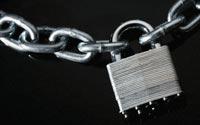Most Web Users Want To Remain Anonymous
- by Wendy Davis @wendyndavis, September 5, 2013

Almost nine in 10 Web users attempt to remain anonymous online by clearing their cookies and browser cookies, encrypting email or using proxy servers, according to a new report by the Pew Research Center.
The report, which examined people's attitudes toward online anonymity and privacy, also says that people are more concerned about the amount of data available about them today online than in the past. In July, 50% of Web users said they were concerned about how much information about them was online, up from 33% in September of 2009, Pew says.
A separate study by Omnicom's Annalect also found that 57% of Web users surveyed in July said they were “concerned” or “very concerned” about online privacy, up from 48% in June. Annalect attributed the spike to news that broke in June about the NSA capturing metadata associated with telephone calls, as well as the substance of people's emails.
Pew researchers found that many people wanted to hide their identities from advertisers, as opposed to the government. One in four respondents (28%) said they want to prevent their Web activity from being seen by advertisers. A greater proportion of men (33%) than women (24%) felt that way. By comparison, 33% of Web users tried to hide their activities from criminals, 19% wanted to hide activities from people in their past, and 6% don't want to be seen by companies that operate sites. Just 5% of respondents said they wanted to hide their activities from the government.
Contrary to the conventional wisdom that millennials are willing to share information about themselves, the youngest respondents surveyed were the most likely to take steps to try to remain anonymous online. Nearly three out of four (74%) Web users between the ages of 18 and 29 said they cleared their cookies or browser histories, compared to 70% of people ages 30-49 and 56% of people between 50 and 64. Almost half (49%) of Web users between the ages of 18 and 29 said they set their browsers to reject cookies, compared to 41% of people between 30 and 49, and 37% of people between 50 and 64.
Other strategies to preserve anonymity include using a temporary name or email address (done by 26% of all respondents) and using a public computer (14%). Overall, 89% of Web users employed one or more strategies aimed at keeping their identities private.
The results are based on a July telephone survey of around 800 Web users.



It doesn't surprise me that people are becoming more protective of their privacy. One of the key issues is delivering equal value for exchange of information. If an individual is asked to provide personal data, regardless of whether that's filling out a form or simply allowing a cookie, they must get something of value in return. And in many cases, the only thing they see if being stalked with online advertising that matches a past event or search.
The answer is to be able to provide consumers with content that are relevant to what they are interested in now, not yesterday. With the availability of emerging real-time marketing capabilities, this is now possible. We're seeing success among those clients who understand the value exchange.
9 out of 10?! Laughable. 9 out of 10 browsers don't even know how to access the cookie deletion feature. This looks a lot closer to "damned lies" than it does statistics.
Wendy-- are you able to link to the report? I'd love to evaluate the methodology of Pew's claim.
Hmmm...welcome to bizarro world. That's where everyone wants free content/services but nobody wants to give anything up. Meanwhile, no complaints about the trashing of the the constitution.
I am with Troy, I don't buy 9 out of 10 for a second...doesn't compute for me.
John, Troy, I suspect that's simply because you don't want to/it doesn't suit you to believe it basically, if you're that smart, tell us what it is, is it 7 out of 10, 8 out of 10, 2 out of 10,whatever - you need to come up with a measurable alternative hypothesis or your comments are unsustainable.